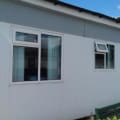Do you have existing floorboards and wish to fit new solid wood floor over it? If you’re planning to go for a DIY effort, there are a number of things you should put into consideration before you even get started. Firstly, you should have it in mind that existing softwood floorboards are usually not flat, implying that the surface of the existing might not be ideal to serve as the foundation on which to put your new solid wood flooring. Secondly, if you’re going to lay the new solid floor on the existing floorboards, it would be wise to select wood that is a minimum of 18mm thick to make your new solid wood flooring a lot more stable.
If you discover that your old floor is not too even, there are two option you can consider to protect your investment. You can lay the new floor at a 90 degree angle over the existing one. In other words, you should lay the new floor lengthways if the old one is laid widthways. Using this technique alongside a method of fitting referred to as secret nailing will go a long way to make sure your installation efforts is a successful one.
The second option you can put into consideration when laying solid wood flooring over old ones is to lay chipboard or plywood over the existing floor prior to the installation of the new floor. Here, there will be an increase in the cost of your installation, however it will be more reliable and durable as it assists in ensuring the stability of your new flooring. Some benefits that comes with this option includes the freedom to lay the new solid wood flooring in any direction you want as well as the freedom to use any fitting method you deem fit. Click here to learn more about wood flooring.





